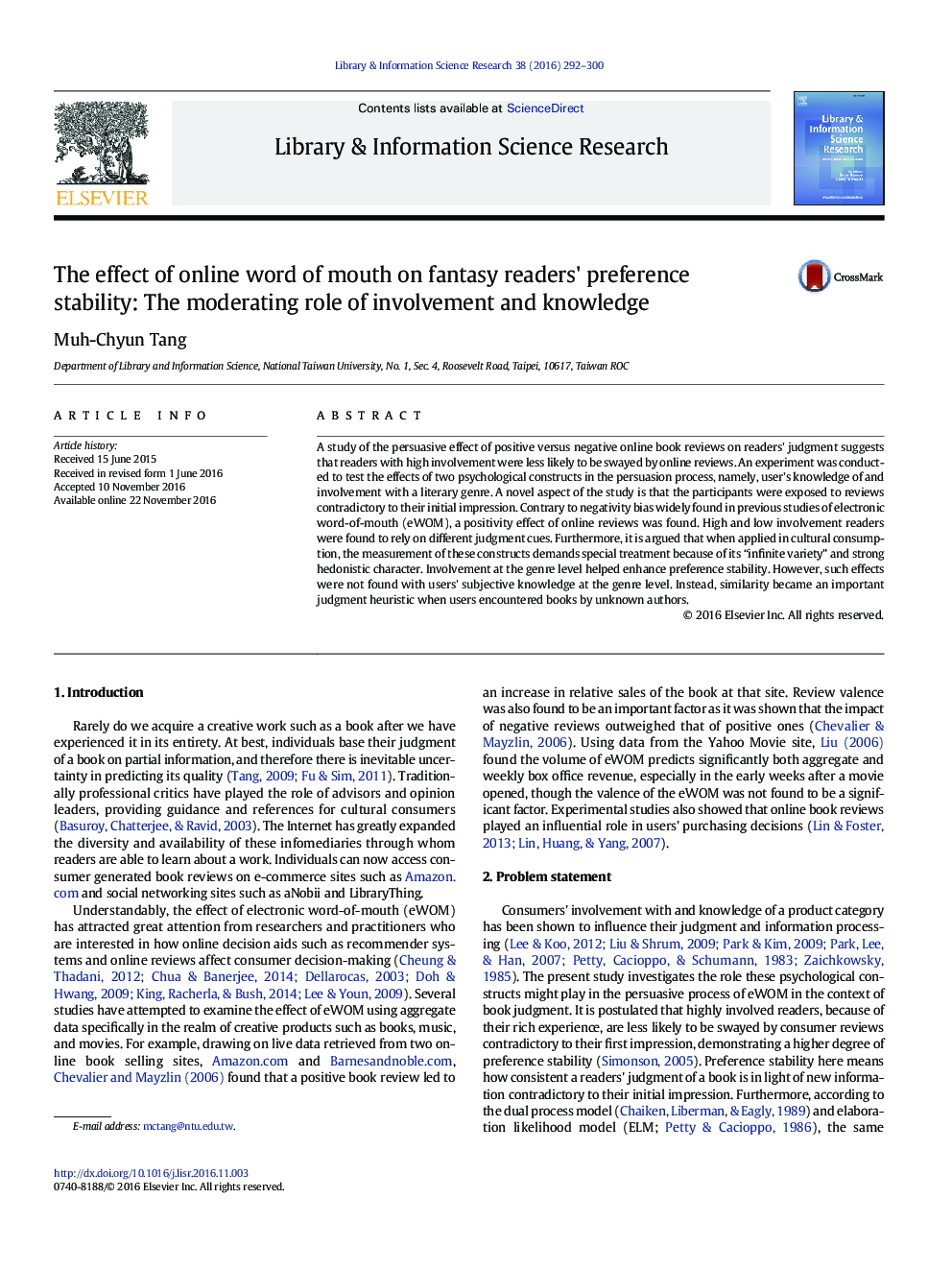| Article ID | Journal | Published Year | Pages | File Type |
|---|---|---|---|---|
| 5123901 | Library & Information Science Research | 2016 | 9 Pages |
â¢Involvement and subjective knowledge constructs were applied in a study of leisure reading.â¢Involvement enhanced readers' preference stability even after they were exposed to contradictory reviews.â¢Similarity heuristics also helped enhance preference stability.â¢A positivity effect was found after readers had formed a first impression of a novel.â¢Involvement influenced readers' use of judgment cues.
A study of the persuasive effect of positive versus negative online book reviews on readers' judgment suggests that readers with high involvement were less likely to be swayed by online reviews. An experiment was conducted to test the effects of two psychological constructs in the persuasion process, namely, user's knowledge of and involvement with a literary genre. A novel aspect of the study is that the participants were exposed to reviews contradictory to their initial impression. Contrary to negativity bias widely found in previous studies of electronic word-of-mouth (eWOM), a positivity effect of online reviews was found. High and low involvement readers were found to rely on different judgment cues. Furthermore, it is argued that when applied in cultural consumption, the measurement of these constructs demands special treatment because of its “infinite variety” and strong hedonistic character. Involvement at the genre level helped enhance preference stability. However, such effects were not found with users' subjective knowledge at the genre level. Instead, similarity became an important judgment heuristic when users encountered books by unknown authors.
